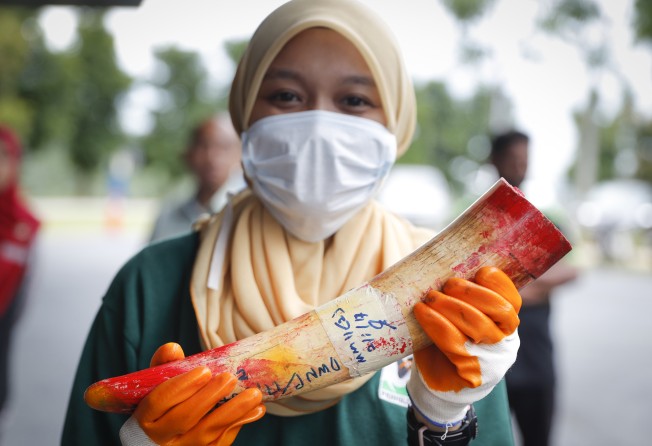Asia has the tools to end illegal wildlife trade, but must show greater will
- Numerous national regulations and multilateral treaties target the traffic in ivory, rhino horn and other endangered wildlife, but lax enforcement makes them paper tigers

High-value seizures of contraband ivory, rhino horn, tiger parts and pangolin scales frequently make headlines. Many live animals are traded with impunity. Regions in Asia, particularly China and Southeast Asia, are the main points for the demand and supply of many endangered species.
Despite national regulations and international commitments related to conservation, illegal wildlife trade continues to be rife in the region. Much of this goes on undetected and so it is difficult to quantify the extent of illicit wildlife shipped and sold internationally.
An increase in seizures does not necessarily mean that law enforcement and customs officials are more alert – it often means that there has been an increase in smuggling, and that illegal products are flooding the ports due to an increase in poaching and consumption. Currently, there is more demand than supply.
All key countries in Southeast Asia are already signatories to international conventions on transnational crime and species trafficking. They are also members of international enforcement agencies and networks – in Southeast Asia, the Asean Wildlife Enforcement Network (Asean-Wen).
So the tools for turning the tide against wildlife crime exist, but there is still an urgent need for rapid high-level commitment to real action, to reverse the current high-profit-low-risk nature of wildlife crime.
Logistics companies that facilitate the import, transit and export of goods must focus on stronger enforcement and tougher restrictions to prevent and penalise the abuse of their services for illicit wildlife trafficking.
Trade kingpins are often involved in multiple businesses – both legal and illegal – and must be monitored. Pet shops and zoos must be scrutinised and detailed investigations conducted, as some of these are fronts for illegal activities.
Investigation into the illicit flow of funds related to people and companies suspected of involvement in wildlife trafficking, money laundering and other related crimes should also be looked into. Corruption in the enforcing agencies is a major concern as well.
Members of the Association of Southeast Asian Nations (Asean) must make a much stronger commitment to addressing wildlife crime as a serious transnational organised business, and must further scale up efforts to combat it.
Equally important is strong collaboration across source, transit and destination countries to ensure that criminal activities along the entire enforcement chain are addressed and neutralised, from source to final destination.
S.M. Mohd Idris, president, Friends of the Earth Malaysia